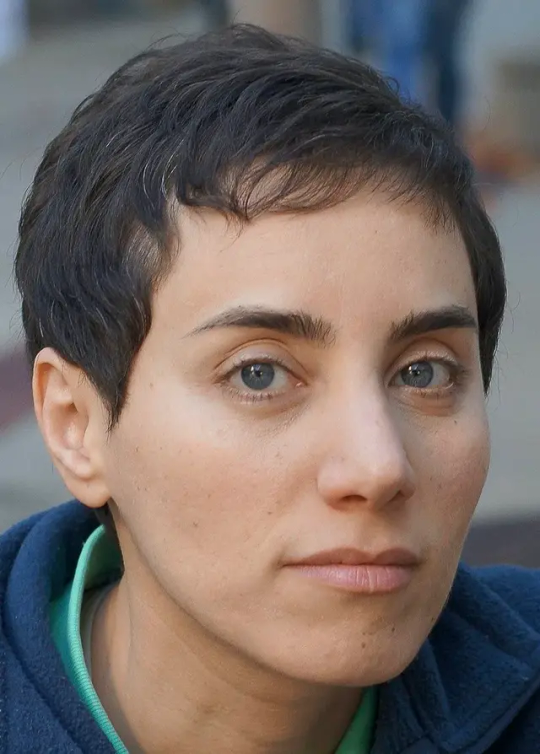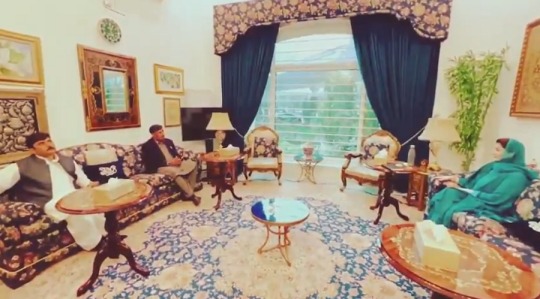#مریم
Explore tagged Tumblr posts
Text
زندگی دگرباشان جنسی در افغانستان بهویژه با حاکمیت طالبان به شدت خطرناک و دشوار شده است. این افراد نه تنها با تهدیدات اجتماعی و فرهنگی مواجهاند، بلکه در مسیر فرار از کشور نیز با موانع جدی روبرو هستند. #زندگی_دگرباشان #طالبان #افغانستان #حقوق_بشر #مریم_و_پروین #شرایط_خارجی #فرار_از_افغانستان
0 notes
Text
مریم نواز کا شنگھائی ایکسپیریمنٹل سکول کا دورہ مختلف شعبوں کا مشاہدہ
شنگھائی ( ڈیلی پاکستان آن لائن ) وزیراعلیٰ پنجاب مریم نواز شریف نے شنگھائی ایکسپیریمنٹل سکول اور چائینز اکیڈمی آف سائنسز کا دورہ کیا۔اپنے دورے کے دوران وزیراعلیٰ مریم نواز شریف نے شنگھائی ایکسپیریمنٹل سکول کے مختلف شعبوں کا مشاہدہ کیا، وہ شنگھائی ایکسپیریمنٹل سکول میں کلاس روم پہنچیں جہاں بچوں کو آرٹیفیشل انٹیلی جنس ایجوکیشن سیکھانے کے جدید طریقہ کار کا مشاہدہ کیا۔مریم نواز نے آرٹیفیشل انٹیلی جنس…
0 notes
Text
وزیر اعلیٰ مریم نواز سے صوبائی وزیر اریگیشن کاظم پیرزادہ کی ملاقات،کسانوں کیلیے بڑی سہولت کا اعلان
لاہور(ڈیلی پاکستان آن لائن )وزیر اعلیٰ پنجاب مریم نواز سے صوبائی وزیر اریگیشن کاظم پیرزادہ نے ملاقات کی،جس میں محکمہ انہار کے امور پرتبادلہ خیال کیا گیا- اریگیشن سسٹم کو جدید خطوط پر استوار کرنے کا جائزہ لیا گیا-کاشتکاروں کو ٹیل تک پانی کی بروقت فراہمی کے تجاویز پر غورکیا گیا-صوبے بھر میں کھالوں کو پختہ کرنے کے پروگرام پر پیشرفت کا جائزہ لیاگیا- وزیراعلی مریم نوازنے کہاکہ پہلے مرحلے میں 10 ارب…
0 notes
Text
مریم پنجاب میں پیپلز پارٹی کے کون سے مطالبات ماننے پر مجبور ہوئیں
پنجاب میں دو حکومتی اتحادی جماعتوں مسلم لیگ نون اور پیپلز پارٹی میں تلخی محبت میں بدلتی دکھائی دیتی ہے۔ ماضی قریب میں پیپلز پارٹی رہنمائوں کی جانب سے توپوں کا رخ نون لیگی قیادت کی جانب کرنے کے بعد پی ٹی آئی حلقوں کی جانب سے دعوی کیا جا رہا تھا کہ پنجاب میں سانجھے کی ہنڈیا بیچ چوراہے پھو ٹنے والی ہے۔ تاہم مریم نواز کی پنجاب حکومت نے پیپلزپارٹی کے تمام مطالبات مانتے ہوئے عمرانڈوز کی خواہشات پر…
0 notes
Text
Your dress blowing in the wind is a war flag
A call to arms,
to the battleground of your hold
Maryam Asady
پیراهنت در باد پرچم جنگی است
که مرا به میدان ِ تنت میخواند…
مریم اسدی
#persian words#farsi#persian literature#poem translation#persian#translator#شعر#persian language#poems and quotes#quoteoftheday#مریم اسدی#شعر فارسی
5 notes
·
View notes
Text
https://longtake.ir/?p=24612
@alirafieiv
عاشقانهای در مترو به کارگردانی امیر مشتاقیان که اردیبهشت ماه 1404 بر روی صحنهی تماشاخانهی70 میلیمتری است، یک تلاشِ بیهوده برای عشقی است که نتیجهی آن قتلی شکسپیر مأبانه شده. این درام یک احترامِ خاصّی برای من دارد و آن این است که من هنرمند روی صحنه میبینم؛ هنرِ هنرمندی که یک هنرمند دیگر آن را هدایت کرده. نمایشی کوچک که مانندِ خیلی از تئاترای آبگوشتیِ اینستاگرامیِ اینروزها در اصفهان تبلیغاتِ فریب دهنده نمیکند، بروشور ندارد و از همه مهمتر آنکه درآمدش از تیوال برایش مهم نیست. البته که تیوال جایی برای فهمیده و دیده شدنِ هنرمندانِ تئاتری است امّا این موضوع را نباید فراموش کنیم که ما به هر قیمتی نباید مخاطب را به جایی هدایت کنیم که بیشتر یک شوخی است تا هنر. آدمی که قبل از اجرا لباس مشکی میپوشد یک شبه انتلکتوئل است که فقط ادای هنریهای اینکاره در آورده. این جماعت همانهایی هستند که دست روی شانهی من میگذارند و تعارف تیکه پاره میکنند که تو دستت باز است و هرچه میخواهی راجع به تئاتر ما بنویس بعد همانها وقتی نقد میشوند با قُلدری ��ه تو میگویند: که تو هیچی نفهمیدی و بلدنیستی یا هَوَلی. بگذریم دنیای اینروزای من، به گفتهی روزبه بمانی، هم قدِ تن پوشم شده. «عاشقانهای در مترو» خیلی محترمتر از آن است که از نامهربانیهای تئاترِ اصفهان درد و دل کنم و...
youtube
#علی رفیعی وردنجانی#art#نقد فیلم#youtube#عاشقانه در مترو#مریم احمدی#امیر مشتاقیان#تئاتر#نمایش#70 میلیمتری#نقلی#تماشاخانه#Youtube
0 notes
Text

ماه نو در خاک ثابت تارس، آرام و ژرف، در میان مربع مقدسی فعال میشود که اضلاع آن پلوتو، لیلیت و مارس هستند. در این آغاز، خاک ثابت تارس به ما یادآوری میکند که خاک، شتاب ندارد.. خاک، آهسته تغییر میکند، بارها تلاش میکند و مسیرش را حتی از دل سختترین سنگها میسازد..
این آغاز تولد زمین در نظم مقدس است..من این چیدمان انرژیها را نه به شکل یک صلیب، که چون مربعی مقدس میبینم. مربعی که نماد پیوند زمین و آسمان از مسیر نظم است. مربع، سمبلی از چهار مرحلهی حیات است: تولد، رشد، بلوغ و مرگ. و این ماه نو، در بستر این نظم مقدس، به ما خبر میدهد که تغییری بزرگ در ساختار کیهان در حال وقوع است.. تغییری که در زندگی ما به شکل موضوعی نو ظاهر خواهد شد. موضوعی که تا دو یا سه سال آینده، همزمان با ورود سترن به تارس و قرار گرفتن آن بر ۷ درجه این نشان، به بلوغ خواهد رسید. تولد زمین و نظم مقدس.
♤درباره این ماه نو یادداشتی کوتاه بر وبلاگ فارسی آسترولوژی نوشتم به رسم خودم و برای دل آنهایی که حوصله و علاقه خواندن چنین نوشتههایی را دارند. همیشه میدانم که این حرفها سهم دلهای خاصی است.
باشد که این ماه نو آغازگر تولد صلح بر زمین باشد. 🤍🍃
.
.
.
#مدرسه_آسترولوژی_ونوس
#انجمن_آسترولوژی_تکاملی_ایران #آسترولوژی_تکاملی #آسترولوژی_تکاملی_ماریا
#کتاب_مدیکال_آسترولوژی_مریم_ناظمی #کتاب_پلوتو_مریم_ناظمی #کتاب_لیلیت_مریم_ناظمی
#فارسی آسترولوژی#آسترولوژی تکاملی ماریا#مدرسه آسترولوژی ونوس#کتاب مدیکال آسترولوژی مریم ناظمی#Spotify
1 note
·
View note
Text
سالن زیبایی در بلژیک
آرایشگاه و مرکز خدمات عروس در بلژیک سالن زیبایی تیراژه بیوتی

0 notes
Text
مريم رجوي: أحمد غزالي رمز التضامن بين شعوب المنطقة
أقيم مساء الخميس 6 رمضان 1446 (الموافق 6 مارس 2025) في المقر الرئيسي للمجلس الوطني للمقاومة الإيرانية بمنطقة أور سور أواز شمال باريس، تحت عنوان “رمضان شهر الأخوة والتسامح ضد ولاية الفقيه والتطرف“ حفل إفطار مميز بمناسبة شهر رمضان المبارك وتخليد ذكرى السيد أحمد غزالي، رئيس وزراء الجزائر الأسبق. ترأست الحفل السيدة مريم رجوي، الرئيسة المنتخبة للمقاومة الإيرانية، وحضرته عائلة غزالي، إلى جانب استضافة…
0 notes
Text

3rd May
Happy birthday Maryam
"A self-professed “slow” mathematician, Mirzakhani’s colleagues describe her as ambitious, resolute and fearless in the face of problems others would not, or could not, tackle. She denied herself the easy path, choosing instead to tackle thornier issues. Her preferred method of working on a problem was to doodle on large sheets of white paper, scribbling formulas on the periphery of her drawings. Her young daughter described her mother at work as “painting.” (Stanford News)
0 notes
Text
خرید آنلاین دارو
داروخانه آنلاین دکتر مریم شیرازی نامی قابل اعتماد در حوزه خدمات دارویی آنلاین است. داروخانه دکتر شیرازی با تخصص در طیف گسترده ای از محصولات از جمله محصولات غیر دارویی، آرایشی و بهداشتی، مکمل های ورزشی، محصولات کودکان و لوازم ارتوپدی، سعی در ارائه بهترین و با کیفیت ترین محصولات به مشتریان خود دارد. داروخانه دکتر شیرازی علاوه بر ارائه طیف متنوعی از محصولات، رضایت و راحتی مشتریان را در اولویت قرار داده است. این داروخانه مشاوره تخصصی، خرید آنلاین، تخفیف، اطلاعات جامع محصول، قابلیت جستجوی پیشرفته، اظهار نظر، پاسخ سریع، پشتیبانی تلفنی و مقالات بهداشتی آموزنده را ارائه می دهد تا تجربه خرید را برای مشتریان خود افزایش دهد. در نتیجه، خرید دارو به صورت آنلاین یک راه حل راحت و در دسترس برای افرادی که به دنبال دسترسی به داروهای ضروری و محصولات مراقبت های بهداشتی هستند، ارائه می دهد. با در نظر گرفتن دقیق نکات مهم و انتخاب داروخانه های آنلاین مورد اعتماد مانند داروخانه دکتر شیرازی، افراد می توانند با در اولویت قرار دادن سلامت و رفاه خود از خریدی بی دردسر و بدون دردسر لذت ببرند.

1 note
·
View note
Text
زندگی دگرباشان جنسی در افغانستان بهویژه با حاکمیت طالبان به شدت خطرناک و دشوار شده است. این افراد نه تنها با تهدیدات اجتماعی و فرهنگی مواجهاند، بلکه در مسیر فرار از کشور نیز با موانع جدی روبرو هستند. #زندگی_دگرباشان #طالبان #افغانستان #حقوق_بشر #مریم_و_پروین #شرایط_خارجی #فرار_از_افغانستان
0 notes
Text
حکومت پنجاب شنگھائی کے حکام کیساتھ آئی ٹی سیکٹر کو فروغ دینے کیلئے تیار ہے، مریم نواز
(راؤ دلشاد)وزیرِ اعلیٰ پنجاب مریم نواز کا کہنا ہے کہ حکومت پنجاب شنگھائی کے حکام کے ساتھ آئی ٹی سیکٹر کو فروغ دینے کے لیے پوری طرح تیار ہے۔ مریم نواز سے کیمونسٹ پارٹی آف چائنا کی شنگھائی کمیٹی کے ڈپٹی سیکریٹری زؤ زونگ منگ نے ملاقات کی۔ڈپٹی سیکریٹری زؤ زونگ منگ نے پنجاب اور شنگھائی کے درمیان معاشی تعلقات مزید مستحکم کرنے کے عزم اور تجارت، سرمایہ کاری، سائنس، ٹیکنالوجی، انڈسٹری میں تعاون کو مزید…
0 notes
Text
وزیر اعلیٰ مریم نواز نے پنجاب لائیو سٹاک کارڈ پراجیکٹ کی منظوری دیدی، مویشی فیڈ کیلئے بلاسود قرض ملے گا
لاہور( ڈیلی پاکستان آن لائن )”پاکستان کی تاریخ کا پہلاپنجاب لائیو سٹاک کارڈ اور پہلی”فارمر رہنمائی ایپ” کا اجراء کردیا گیا-وزیر اعلیٰ مریم نواز نے پنجاب لائیو سٹاک کارڈ پراجیکٹ کی منظوری دی جس سے مویشی فیڈ کے لیے اڑھائی لاکھ روپے بلاسود قرض ملے گا -وزیراعلیٰ کی زیر صدار ت لائیو سٹاک سے متعلق اجلاس ہوا،جس میں اہم پراجیکٹس کی منظوری دی گئی-وزیر اعلیٰ نے لائیوسٹاک فارمر کے لئے قرضے کے حصول کے…
#اعلی#بلاسود#پراجیکٹ#پنجاب#دیدی#سٹاک#فیڈ#قرض#کارڈ#کی#کیلئے#گا#لائیو#مریم#ملے#منظوری#مویشی#نواز#نے#وزیر
0 notes
Text
بجلی ریلیف کو”بیوقوفی “کہنے پرمریم نوازکا مرادعلی شاہ کوجواب
وزیراعلیٰ پنجاب مریم نواز نے بجلی ریلیف کو ”بیوقوفی“کہنے پر وزیراعلیٰ سندھ مرادعلی شاہ کو بھرپور جواب دیدیا۔ وزیراعلیٰ مریم نواز کا وزیراعلی سندھ کی جانب سے بجلی قیمت میں ریلیف کو بے وقوفی کہنے پر سخت ردعمل سامنے آ گیا۔ مریم نواز نے کہا کہ عوام کو بجلی کی قیمت میں ریلیف دینا بے وقوفی ہے تو کیا کرپشن کا پیسہ جیب میں ڈالنا نہیں؟کسی نے لفظ استعمال کیا یہ بے وقوفی ہے اس پر میں ہنس پڑی ۔ وزیراعلی…
0 notes
Text
مریم نواز سے 7 آزاد ارکان پنجاب اسمبلی کی ملاقات
پاکستان مسلم لیگ (ن) کی سینئر نائب صدر اور چیف آرگنائزر مریم نواز شریف سے 7 نومنتخب ارکان پنجاب اسمبلی نے ملاقات کی۔ ملاقات کرنے والوں میں پی پی 240 بہاولنگر سے سہیل خان، پی پی 48 سیالکوٹ سے خرم ورک، پی پی 249 احمد پور شرقیہ سے شہزادہ گزین عباسی ، راجن پور سے خضر مزاری، پی پی 96 چنیوٹ سے ذوالفقار علی شاہ، پی پی 49 پسرور سے رانا فیاض اور پی پی 97 چنیوٹ سے ثاقب چدھڑ شامل تھے۔ مریم نواز شریف نے آزاد…

View On WordPress
0 notes